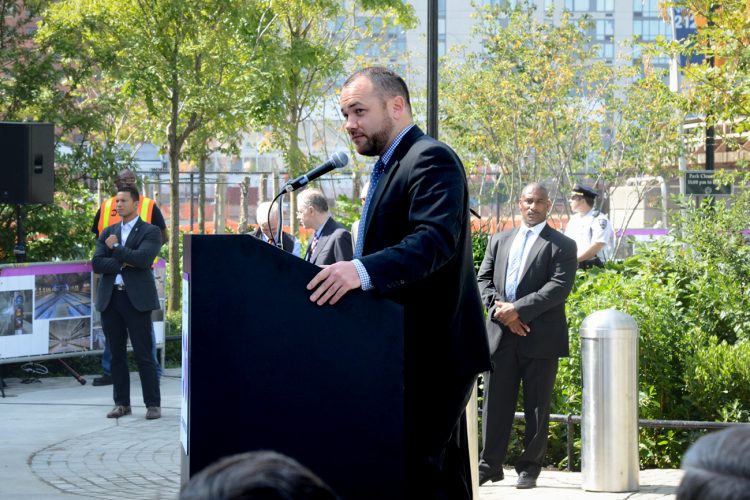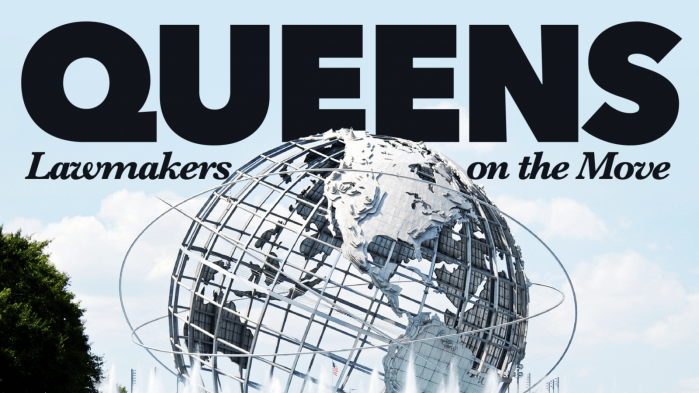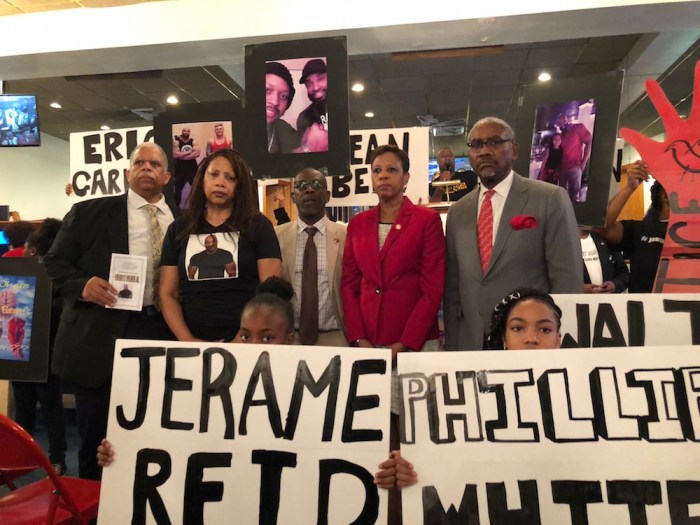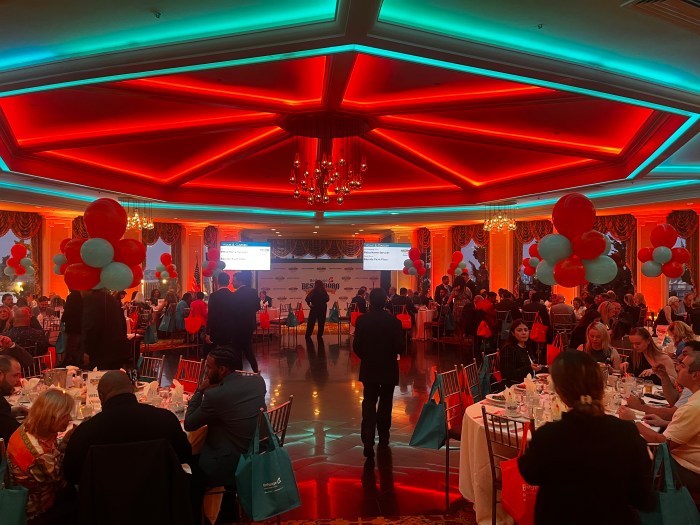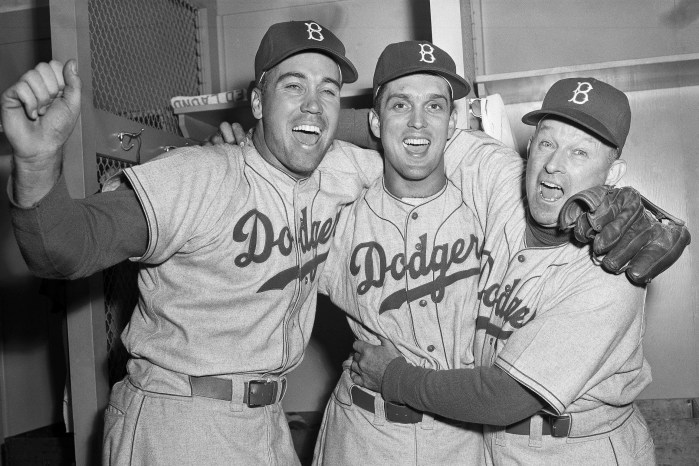The atmosphere was somber at yesterday’s City Council hearing. The council members, all stationed in their apartments and conducting the hearing through Zoom, acknowledged that this was new, uncomfortable territory for them. As public officials, they had grown accustomed to conducting business out in the open.
“We naturally want to be up front; we want to be at the forefront,” said Council Majority Leader Laurie Cumbo (D-Brooklyn). “For me, as a mom of a two-year-old with two parents over the age of 80, it has been the hardest thing as a leader to have to stay indoors and lead my community at the same time.”
Nevertheless, the hearing went on, as the Council begrudgingly accepted this new reality.
On Apr. 22, the City Council conducted the first virtual hearing in its 52-year history. The meeting saw the introduction of several new COVID-19 relief bills, courtesy of Laurie Cumbo, Council Speaker Corey Johnson (D-Chelsea, Hell’s Kitchen), and Council Members Carlina Rivera (D-East Village, Gramercy Park), Stephen Levin (D-Brooklyn), Brad Lander (D-Brooklyn), Adrienne Adams (D-Queens), Ritchie Torres (D-Bronx) and Ben Kallos (D-Yorkville, Lenox Hill), among others.
“It isn’t easy to get an 82 year-old legislative body up and running remotely for the first time in its history, but I am proud of the work that the staff put in to make this happen in a secure and publicly accessible fashion,” said Johnson. “I speak for all members in saying we are eager to resume legislating for the people of New York. The coming weeks and months will not be easy for us a city, but I can guarantee that the Council will do everything in its power to help us weather this difficult time.”
Most notably, the hearing saw the introduction of four bills which, combined, would establish an “Essential Worker’s Bill of Rights”. Each bill would provide our frontline workers with vital legal protections as they put their lives on the line during the crisis.
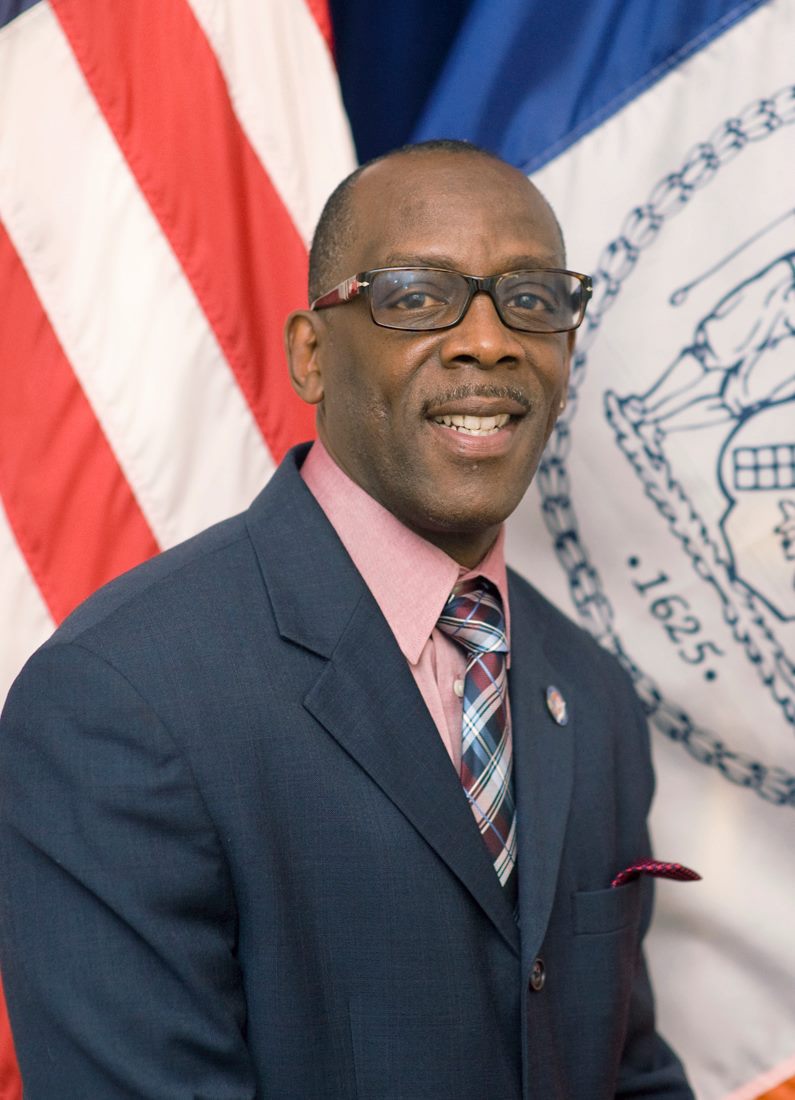
“COVID-19 has taken an awful toll on our city, state and country,” said Councilmember I. Daneek Miller (D-Queens). “Yet despite this disarray that we have suffered, the one constant throughout this ordeal has been how our city’s workers – our municipal and essential workers – have once again stepped up. As I often say, it is the men and women of our city’s workforce that give this city value.”
The four bills in this category were as follows:
- Int. 1918, sponsored by Speaker Johnson and Majority Leader Cumbo, would require large employers to pay premiums to non-salaried essential workers, until New York lifts its state of emergency.
- Int. 1923, sponsored by Councilmembers Kallos, Johnson and Lander, would ban all employers from firing essential workers without just cause.
- Int. 1926, sponsored by Councilmember Lander, would expand the Earned Safe and Sick Time Act to include freelancers and gig economy workers.
- Res. 1285, sponsored by Councilmembers Lander and Kallos, would prevent businesses from misclassifying their employees as independent contractors to avoid paying benefits.
“As we continue to thank and praise all these workers, including cheering for them nightly, we must protect them from facing retaliation for speaking out against unsafe conditions and demanding protective equipment,” said Kallos, explaining the rationale behind Int. 1923.
The hearing also saw the introduction of several other bills intended to preserve public safety, protect renters and support small businesses. For instance, Int. 1933, introduced by Johnson and Rivera, would open the streets to cyclists and pedestrians, in order to give New Yorkers more space and make social distancing easier.
“Just this week, we have seen reports from urban planners that almost all of our city sidewalks are unsafe for social distancing,” said Rivera. “Our bill will increase space for essential workers to commute safely; it will supplement our already crowded parks, which will only become more cramped this summer; and it will bring equity to communities of color that, for decades, have lacked the open spaces that we are fortunate to have in other neighborhoods.”
In regards to renter protection, Int. 1936, sponsored by Speaker Johnson and Councilmember Torres, would prohibit landlords from harassing tenants based on their exposure to COVID-19. To protect small businesses, Int. 1914, sponsored by Speaker Johnson and Councilmember Torres, would provide the same protections to commercial tenants.
“Thousands of businesses in our cities are suffering, as they’ve been forced to close due to COVID-19,” said Adams. “Many businesses are unable to pay their rent. This leaves them vulnerable to harassment from landlords, looking to find ways to collect or get their tenant to voluntarily abandon the property. The threat of harassment will particularly impact the city’s small, independently-owned, immigrant-owned businesses.”
At the conclusion of the hearing, Johnson thanked the rest of the Council for continuing to work during the crisis, and expressed optimism that the City will endure if we continue to act smartly and responsibly.
“We’re all in this together,” said Johnson. “We need to continue to practice social distancing. Three weeks ago, we were losing 900 New Yorkers a day. Now the number is down to 450, but that is still an astounding number of people. As painful and difficult as it is for New Yorkers to socially distance, it is so important for us to do that, because we need to relieve and keep that pressure off of our healthcare system.”


